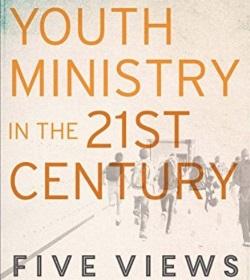God knows it is difficult these days to have a civil conversation via social media about ministry. Ideas, positions and theologies so often turn into arguments—or worse—descend into personal attacks or hostility. That is why Youth Ministry in the 21st Century is an important book—perhaps an essential one—and why thoughtful church leaders will appreciate the candor of its five voices and the civil conversations it offers across the spectrum of youth ministry theologies and approaches.
Leaders from every corner of the church are going to enjoy this book immensely and gain much from these well-reasoned, well-written debates on the status and nature of contemporary youth ministry. The writers (each one a seasoned ministry veteran from his respective tradition and viewpoint) are:
Fernando Arzola Jr.—who writes passionately about a return to ecclesial youth ministry and emphasizes integration of all ministries in the congregation.
Brian Cosby—who offers the Reformed tradition and a foundational emphasis on God’s sovereignty and a return to doctrinal teaching and discipleship.
Ron Hunter—whose D6 approach (short for Deuteronomy 6) emphasizes an integrative ministry of youth leaders, parents and relationship-building.
Greg Stier—whose gospel-advancing, evangelical approach centers on bridge-building and disciple-making practices among the teens themselves.
Chap Clark—who in addition to his fine editing skills, promotes an adoption view, which espouses the idea that the church must become family to teens.
However, readers would do well to view the brief summaries above as teasers only, as each of these positions offers much more to chew on, along with some thoughtful feedback and lively debate from the other four.
Although varied, there are several points on which each seems to agree; perhaps these are where contemporary youth leaders can glean a workable core to navigate ministry in this awkward and challenging time. For example, all would agree youth ministry is more difficult than ever before in America. Further, with the stakes high and so many voices and ideas competing for the hearts and lives of teenagers, the church needs to adopt new (or perhaps tried and true) theologies and methods to form community. That’s the ending point for these five views, as well: a renewed emphasis on integration of youth ministry, not isolation, and a centuries-old theology of the church, the family of God. Those who can take the theological journey in these pages are certain to emerge on the other side with renewed hope and a deeper passion for doing the tough work of youth ministry, including when the ways are not crystal clear.




